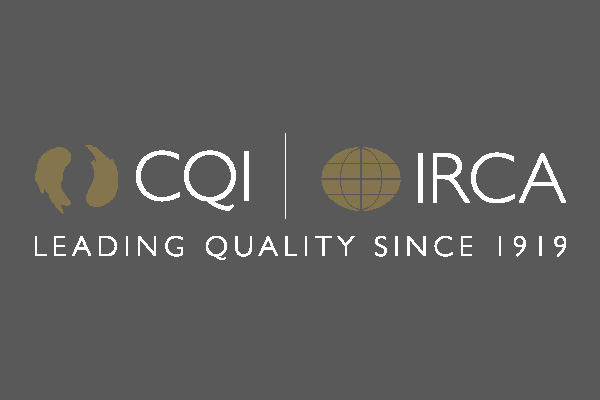
MANAGING QUALITY PLANNING (PT208)
The CQI and IRCA Practitioner Quality Management courses enables you to develop your understanding of management level quality topics. And, how this knowledge applies to your within your role, organisation and industry. These courses are designed specifically for those working in a quality role who wish to develop their knowledge and skills and / or those who aspire to middle management.
The Managing Quality Planning (PT208) course provides practical skills to deploy an integrated project-based approach to meet customer and stakeholder requirements. You can find out what you’ll study, how you’ll learn and how you’ll be assessed, below.
You may also be interested in The Practitioner Certificate in Quality Management which comprises of eight courses. This includes a 10% saving on course fees. For further information download the Practitioner course brochure here.
DURATION
24 HOURS
(MINIMUM)
SUPPORT
DEDICATED
TUTOR
LEARNING
DISTANCE
LEARNING
COST
£545.00
+ VAT
LEVEL
PRACTITIONER
This course provides the practical skills to manage the early phases of the product/service lifecycle and work with teams to deploy an integrated project-based approach to product/service quality planning and risk management, in order to meet customer and stakeholder requirements.
- Benefits of product and service planning:
- Principles of PDCA
- Relationship between PDCA and product/service planning
- Standards for Quality Planning (ISO 31000, ISO 10005).
- Translating customer/stakeholder and other requirements into functional product and service requirements:
- Review of Creating Customer Excellence (voice of the customer)
- Understanding how to establish legal, compliance, regulatory, societal and standards-related requirements
- Quality function deployment overview
- Building the House of Quality
- Generating the ‘waterfall’ of matrices.
- Managing projects (overview):
- Key principles and roles
- Project charters
- Milestone planning
- Business case
- Development of timing plans
- Monitoring projects
- Key requirements of ISO 9001:2015 (Sections 8.2 – 8.6) for product/service design and development.
- Managing products and services through quality planning phases:
- Overview of Design for Six Sigma project methodology of Define, Measure, Analyse, Design, and Verify
- Stage-gate reviews
- Checklists
- Design verification
- Product/service validation
- Key tools: Design Failure Mode and Effects Analysis, control plan, capability
- Managing external provider/supplier development.
- Managing project and product/service risks:
- Risk assessment tools: risk register.
- Risk evaluation tools: risk matrix.
- Product/service risk analysis tools: Fault Tree Analysis, Design Failure Mode and Effects Analysis, Process Failure Mode and Effects Analysis.
- Managing scope.
- Budgets and financial planning.
- Risk response techniques.
- Integration into quality planning methodologies and project stages.
All of our courses are delivered by supported distance learning – which simply means you can study at home or work, at a time – and a pace – which suits you.
Once you’ve enrolled, your dedicated tutor will contact you to arrange your induction. They’ll go through everything you need to know, and you’ll agree your learning plan.
We’ll also email your login details along with a weblink to our online learning system. Here you’ll have 24/7 access to everything you need to complete your course – your learning, study support and assessment materials and tutor will provide timely advice, support and feedback throughout your course.
This means:
- You’re not constrained to set dates/times for training – you can start when you’re ready.
- You can complete your training at a pace that’s best for you – if you have more time than expected you can accelerate your learning and complete earlier than planned.
- You can access course learning, assessment and study support materials, receive feedback and support and sit your exam at a time and place that works for you.
Once you’ve successfully completed your course you’ll receive a digital CQI and IRCA accredited certificate. It really is that simple.
- Assessment for practitioner courses is two-fold. On successful completion of the course workbook for you will sit a CQI-set, multiple-choice (30 question), open book, one hour exam. The pass mark is 66%.
- Your exam is typically facilitated through work – if this is not an option, please contact us and we’ll provide you with further information on exam options.
- When you pass the exam you will be awarded a certificate of achievement.
TYPICAL COURSE DURATION: 8 WEEKS + EXAM
This assumes you can commit to at least 4 hours of study each week. You and your tutor will agree your planned end date, during your induction.
The minimum learning hours for each course is 24.
The course resource provides additional sources for research and so study time can exceed this if you wish to get more out of the course.
The maximum course duration, set by the CQI and IRCA, for each course is 6 months and for completion of the Certificate is 3 years.
The Practitioner courses are aimed at those practising in quality and aspiring towards middle management. At the point of enrolment, we ask you to provide a brief statement on your experience, training, qualifications and study goals (or you can send your CV). Our Programme Lead will assess this to ensure the level is appropriate and will support your development aims.
Typically, we’d advise at least two years’ experience within a quality management role for these courses.
Suggested prior learning: Introduction to Risk Management (FD103) & Introduction to Product and Service Management (FD105).
If you are unsure which level or course is right for you, you can use the CQI tool to help you decide (https://www.quality.org/training/quiz). Or, get in touch with us to request a free consultation.
On successful completion you will be awarded a certificate of achievement.
The Practitioner Certificate in Quality Management is awarded, by the CQI, following the successful completion of all eight Practitioner courses.





